Egypt launches largest anti-poverty plan
The government has always attached paramount importance to upgrading underprivileged areas nationwide within the framework of President Abdel Fattah El Sisi’s directives to improve basic services for villages and people.
In January 2019, President Sisi launched an initiative to improve the standard of living in the neediest community groups across the country and upgrade basic utilities in marginalised villages.
Dubbed the Haya Karima (Decent Life) initiative, it targets the development of Egypt’s countryside in three years.
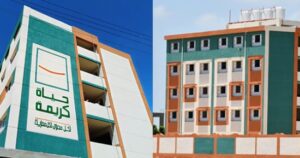
The United Nations said, “Decent Life” is an initiative endorsed by President Sisi, with the main objective of improving the quality of life in the poorest rural communities within the framework of the Sustainable Development Strategy: Egypt Vision 2030, through decreasing multidimensional poverty and unemployment rates.
The presidential initiative involves unique collaboration and co-operation between the ministries concerned, the private sector and the civil society.
It is an unprecedented development project, which will change life in the Egyptian countryside altogether.
President Sisi attended the first conference of the national “Descent Life” project to develop the countryside on Thursday at Cairo International Stadium. President Sisi said in his speech during the ceremony that the initiative ushers in the start of “Egypt’s New Republic”.
“I am declaring the start of Egypt’s new republic, as this is the largest project aimed at upgrading and developing the Egyptian countryside,” the president said.
The initiative aims at making a big leap in depending on local production as well as developing the industrial and business sectors as part of the state’s comprehensive development plans.
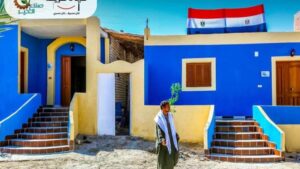
The project aims also to raise the standard of living of 58 million Egyptians in more than 4,500 villages over three years at a cost exceeding LE700 billion (about $44.6 billion).
It focuses on raising the social, health, educational and economic levels of rural people in compliance with the state’s objectives for human capacity building as well as achieving sustainable development for 2030.
The initiative aims to provide decent housing, water and sanitation, assist small and medium businesses, and provide in-kind support periodically for struggling families.
The first phase of the initiative began in July 2019 with the development of 375 villages considered to be among the poorest in 14 different governorates all over the country. The services provided to the villages were in the sectors of health, education, drinking water and waste water, electricity and gas, roads and transport along with sports and environmental services.
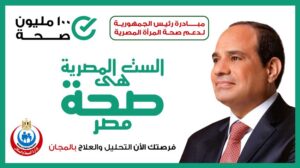
The goals of the first phase of the project include achieving economic empowerment, promoting social intervention and human development programmes, and developing the sectors of health (hospitals, health units and ambulance station), electricity, education, communications, youth and sports, and agriculture.
Moreover, the project supports the services provided by the social solidarity sector, such as eradicating illiteracy, rehabilitating the disabled, helping the neediest brides to get married, providing decent housing to the most in need, developing vocational training programmes, establishing industrial and agricultural complexes, promoting waste recycling, and establishing small and micro projects.
Up to 4.46 million people benefited from Haya Karima initiative in its first phase with total projects and services worth LE13.5 billion.
Up to 600 national projects were implemented in this phase.
More than 1,580 schemes are expected to be completed by the end of 2021.
A sizeable number of non-governmental organisations participated in the initiative under the supervision of the Ministries of Social Solidarity and Planning.
In December 2020, President Sisi decided to expand the initiative to include 4,500 villages within the framework of the Sustainable Development Strategy: Egypt Vision 2030.
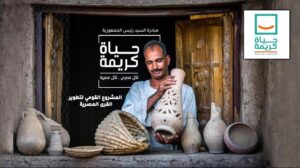
Egypt’s sustainable development plan for fiscal year 2021-2022 allocated LE200 billion for the social initiative Haya Karima and the plan was approved by the parliament.
The LE200-billion budget allocated for the initiative will be invested in health (LE27.5 billion), education (LE4.4 billion), electricity (LE20 billion), sanitation and drinking water (LE102 billion) and paving roads (LE12.2 billion).
The volume of investments during the first phase of the Decent Life initiative stood at LE7.5 billion by the end of 2020, according to a recent statement by the Ministry of Planning and Economic Development.
According to Minister Hala el-Saeed, the initiative targets to improve the lives of more than 50 million Egyptians.
The “Decent Life’’ initiative has been included on the United Nations platforms among the best practices in the world in achieving sustainable development goals.
It is worth mentioning that this initiative has contributed to mitigating the negative impacts of Covid-19 through improving the standards of living conditions of the most in need groups, while providing job opportunities through supporting SMEs, the United Nations said on its website.
Executive Director at the International Monetary Fund (IMF), Dr Mahmoud Mohieldin, noted that the United Nations considers the Haya Karima national project as an excellent example for localising the sustainable development goals, and that it will contribute to providing essential job opportunities for Egyptians in impoverished areas.
The initiative fully achieves the 17 UN sustainable development goals.
Its first phase succeeded in reducing poverty rates in about half of Egypt’s governorates.The initiative is divided into three geographical phases, according to needs across villages. The first phase includes villages with poverty rates of 70 per cent or more, which need urgent intervention. The second phase covers the villages with poverty rates between 50-70 per cent.
The third includes the villages with poverty at 50 per cent and less. The initiative is planned to be implemented on two phases. The first phase (2019-2020) covered 372 villages in 67 centres at 14 governorates, with a population of 4.46 million people. The second phase (2021-2023) targets 1,371 villages in 2021 and about 3,299 villages in 2022 and 2023, with a total of 4,670 villages in 175 centres and 20 governorates, thus serving 57 per cent of the population by the end of the initiative.
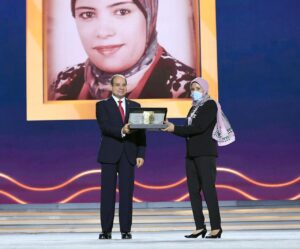
“Without this initiative, we would have not achieved this development in less than 15-20 years,” Minister el-Saeed said in previous statements.
The initiative was meant to replace, renew and develop a number of bridges, establish 1,388 roads and build 162 new youth centres across the countryside. In the field of communications, the initiative implements a number of projects to connect homes with fiber-optic cables, develop post offices in villages and provide them with mobile towers.
Moreover, the initiative aims to empower and support female breadwinners as part of its development plan. It aims to establish projects for breadwinners, widows, divorced women and young girls.
Haya Karima has already reached several remote villages in Upper Egypt, to fulfill citizens’ hope for a decent life.
Haya Karima is Egypt’s 21st century project, Prime Minister Moustafa Madbouli said in recent remarks.
“It covers the entire country and involves thousands of simultaneous projects” Madbouli said. He described the project as a 100 per cent Egyptian venture with total of investments of LE700 billion, including LE270 billion in the initial phase.
It is the Egyptians themselves who chose the Haya Karima projects. Hundreds of meetings were held with stakeholders and beneficiaries before determining the projects to be implemented within the initiative.
The initiative allocated LE32 billion to develop slums nationwide. It has undertaken around 264 medical convoys across Egypt’s countryside in all specialisations. The achievements made during the first phase of the initiative include the establishment of 100 health units at a cost of LE450 million, and equipping them according to the new comprehensive health insurance model.
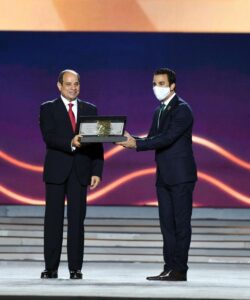
Up to 1,000 road and bridge projects were implemented at a cost of LE3.825 billion. Up to 500 electricity projects at a cost of 1.425 billion pounds were executed across the country’s neediest villages. More than 141 sanitation projects were carried out at a cost of 1.550 billion pounds. Up to 150 schools at a cost of 750 million pounds were built, in addition to more than 917 new classes to existing schools.
The initiative has 4 pillars:
1. Improving living-standards and investing in human capital
2. Developing infrastructure services
3. Raising the quality of human development services
4. Economic development.
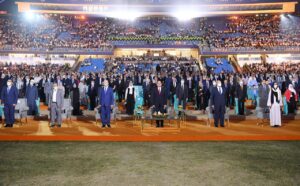



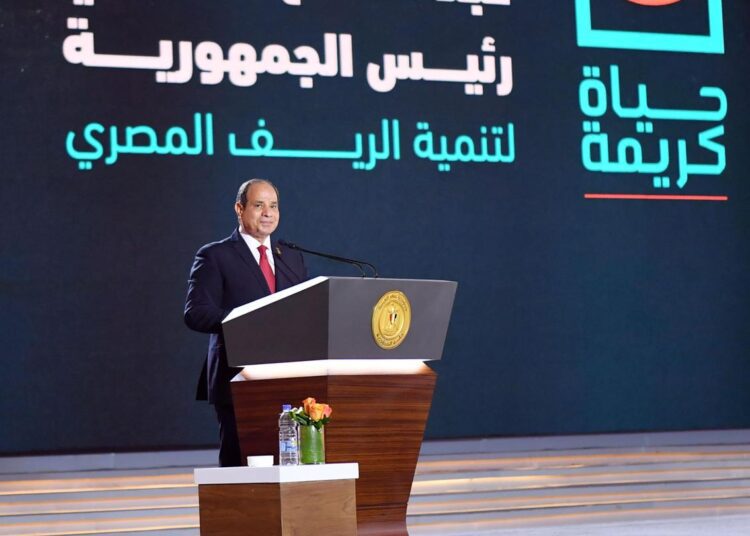


Discussion about this post